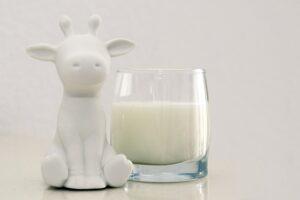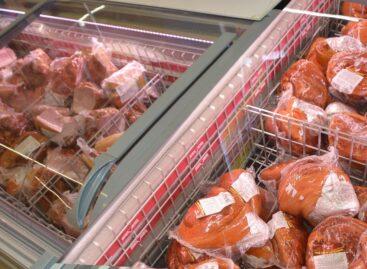An efficient, innovative and competitive dairy industry is needed
The time has come to develop the domestic dairy industry, we need investments that improve efficiency and increase the competitiveness of the sector’s players. The goal is to regain the domestic market, instead of imported products, Hungarian consumers should be supplied with domestic dairy products as much as possible – it was said at the press breakfast organized on the occasion of the 49th World Milk Day.

(Photo: Pixabay)
On the occasion of the 49th World Milk Day, the Tej Interprofessional Organization and Product Council organized a press breakfast for media representatives with the participation of István Nagy, Minister of Greyhounds, and Balázs Győrffy, President of the National Chamber of Agriculture. The balanced development of the dairy sector is supported by a transparent support policy that ensures accessibility for all players in the sector. The 80 percent national additional funding provided to European Union sources, i.e. between 2021 and 2027, KAP II. the tripling of rural development subsidies, which form its pillar, serves to increase the competitiveness of the Hungarian agricultural economy, preserve natural resources and improve the quality of life in the countryside. “Now in June, the tenders that provide opportunities for the development of the feed industry, the food industry and animal husbandry will become final. The tenders for the processing industry will be announced with a total amount of HUF 200 billion, as well as calls for tenders for the renewal of livestock farms with a total amount of HUF 200 billion. With this, the possibility of using HUF 400 billion worth of resources as a whole now opens up,” underlined the Minister of Agriculture. In relation to the animal welfare support accompanying the restructuring of the dairy sector, he indicated: the processing of the support requests received is ongoing, approximately 550 supporting documents are expected to be issued in the near future, worth about HUF 42.5 billion. “If we look at the use of subsidies, we see that the players in the sector are taking advantage of their opportunities, because they understand the words of the times: adaptation and renewal are needed now more than anything else, but real renewal always comes from within,” emphasized István Nagy.
Balázs Győrffy, the president of NAK, in his welcome, drew attention to the fact that processors and dairy cattle farmers should also take advantage of the support opportunities provided by the Strategic Plan based on the new Common Agricultural Policy
From the point of view of the sector’s competitiveness, the development of production and processing is essential. “We have to take important steps to regain our market. Hungarian consumers should be supplied with domestic dairy products as much as possible,” emphasized the NAK president. Balázs Győrffy reminded me of the advertising campaign called the butter-margarine war in the press. According to his words, the margarine manufacturer in question crossed a line that leads communication in a very bad direction and is also unacceptable from the point of view of market competition. The aforementioned campaign questions the raison d’être of dairy cattle farming by presenting plant-based products as more valuable in terms of quality. The NAK and the Tej Product Council therefore called on the company to suspend the campaign and to remove elements with misleading messages. Attila Koller, the processing co-chairman of the Milk Product Council, emphasized in his speech that the lack of development in the processing industry, especially in critical market situations, seriously reduces Hungary’s competitiveness against milk products coming from western member countries at dumped prices. The aim of the development of the industry should be to increase the added value of production, to keep, process and sell Hungarian raw milk at home. An equally important goal is to provide continuous service to retailers, and to change the shelf ratio for products that can be produced here, which are still mainly imported. In the current economic situation, the introduction of an interest subsidy for the loan that can be used to implement the investment and a fee subsidy for the guarantee fee is also justified. The lack of skilled labor is a growing problem for businesses in the entire food industry, so rethinking the training system is an urgent task. Milk processors are unable to manage the cost increase caused by the EPR fee, the increased toll, the excise tax, the rising minimum wage, water and sewage charges, and it often cannot be compensated by increasing efficiency. Attila Koller emphasized the need to review the goals and requirements of the system in connection with the electronically managed self-check plan.
In his speech, Miklós Istvánfalvi, co-chairman of the Milk Product Council producers, reported that tempers are boiling over in the industry due to the comparative advertising of butter and margarine
In relation to unethical advertising, he called for deterrent official action, as deliberately deceiving consumers could be a violation of the law. Butter has been made in the same way – naturally – for thousands of years, but the way in which margarine is produced on a large scale is shrouded in obscurity. On behalf of the milk producers, Miklós Istvánfalvi welcomed and thanked the Government for the timely payment of the price of raw milk and the introduction of the mandatory “advance payment”. He considered it particularly important that the authority of the inter-trade organization regarding the development of contract models remained in force, and at the same time requested that the Government do everything possible to provide operational support for producer groups, producer and inter-trade organizations by amending the Hungarian CAP Strategic Plan. In his comment, he also emphasized the importance of paying the subsidies on time, as well as streamlining and significantly reducing the administration. Ilona Zséli, a member of the retail board of the Milk Product Council, said that the retail trade is happy to note the investment support opportunities for processors, as imports are unfortunately currently unavoidable, especially for fruit yogurts, block cheeses and dairy desserts. The dairy industry must be efficient, innovative and competitive. The increase in costs, the application of temporary trade policy tools, and other tax burdens have put food trade operators in a difficult situation, so it would be important to gradually phase out and alleviate these tools. From July 2022 until the end of 2023, the domestic food retail turnover continuously decreased, with a moderate increase only in 2024. Although the market is still extremely price sensitive, retailers are confident that the desire to buy will return and a solid growth will be realized in the coming period. It is extremely important for all players in the sector to draw the attention of consumers to the importance of buying domestic products.
NAK
Related news
European Court of Auditors: EU Commission proposals affecting the common agricultural policy may cause uncertainty
🎧 Hallgasd a cikket: Lejátszás Szünet Folytatás Leállítás Nyelv: Auto…
Read more >Related news
Ham seasons: the bad, the better and the good (?)
🎧 Hallgasd a cikket: Lejátszás Szünet Folytatás Leállítás Nyelv: Auto…
Read more >









